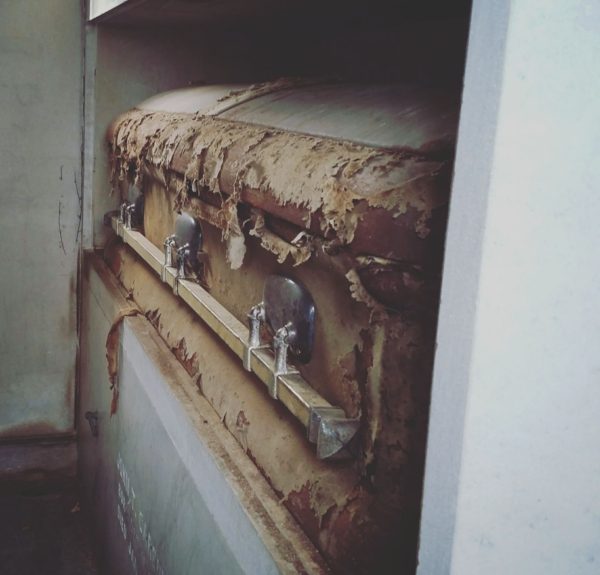Origins Of Decay
The decay of Western Civilization is all around us. If you have doubts, take your history textbook to a busy public area and focus on observing what you see around you. Other than an increase in technology and wealth, how does this time compare to the past?
Recently someone asked me when the decay started. This proves challenging to answer because most commonly we know decay only through its symptoms, with its causes being invisible and buried under layers of analysis. To simplify the process, it makes sense to look at what public figures have said about decay.
Bill Clinton is known for exporting the concept of climate change to the world. His opinion was that the Earth is in decay and that it is caused by humanity. What he should have said was that climate change is caused by organizations comprised of humans, instead of pointing towards his people as being in decay.
In other words, the organizations are in decay, and this cause results in the symptoms or effects of Earth experiencing decay. We can extend this to any other type of social problem: if dystopia arises around you, stupidity becomes the norm, culture is garbage and your fellow citizens seem more like criminals, this is a result of bad leadership and hierarchy.
Decay can have multiple causes. For example, a population bloom like red tide can eliminate the ecosystem of a lake; introduction of invasive species can destroy indigenous flora and fauna and then, since the invaders are not well-adapted, cause them to die off as well. Invasive species in fact present a powerful metaphor:
All native species — not only those on islands and mountaintops — lack a co-evolutionary history with species from elsewhere. This is why non-native species are far more likely to cause ecological damage than native ones (up to 40 times more likely in comprehensive reviews of data)…
We know that about 80% of all extinctions recorded since 1500 occurred on islands. Two papers recently analyzed extinctions events and concluded that invasive species were cited most frequently as the cause of island species extinctions and invasive species are the most common threat associated with vertebrate extinctions globally.
This provides a vision of decay: the island is still there even though all the animals are dead. Eventually, life will renew itself in different forms. Driftwood will bring animals; birds blown off-course will land there and start colonies. Over time, these will adapt and a new set of distinctive species will arise.
This continuous renewal means that decay is a permanent condition, which means that it varies in degree over time but is never completely absent. All islands, societies and organizations are somewhere on the spectrum of breakdown. Organizations for example are in permanent decay, therefore requiring continuous renewal.
Similarly, human history shows us many instances of humans dying off in large numbers, but somehow renewing themselves and growing to even larger numbers of individuals. How can humanity be in decay when its populations are expanding? How can organizations be in decay when their wealth is increasing?
Comparing to animal populations exploding unabatedly, we see that the differences it that humans have the wherewithal to subconsciously know that an exploding population is a very bad thing. It is inexplicable in the natural order of things. It is out of balance. We know that this means short-term success and long term catastrophic failure.
However, this works against our need for power. Controlling population growth of anything is not a business opportunity. You do not make money from reducing the number of consumers or resources, and so if you succeed in controlling population, the business will fail and the population will fail in consequence.
Humans have always been in decay because they refuse to accept the natural order of things. This means humanity is a mistake; the human species is nature’s mistake. In fact, most planets do not have humans and we commend them on that choice. The reason for refusal to accept the natural order is that humans choose to filter out scary ideas and instead to seize business opportunities.
We peripatetic intelligent Simians have been genetically endowed with the ability to trick ourselves into ignoring bad news. Humans will never tell their children bad things, only the positive, thereby literally selection for the gene that allows for self-deception. Without awareness of the negative, people see only business opportunities, and thus every society grows out of control and suicides.
This makes humans like the animal swarm on the island: a force of its own self-destruction unless restrained by some wiser force. In human history, this force has only come through institutions like the aristocracy which concentrate ability and wisdom and apply it to the rest who will otherwise create a tragedy of the commons and destroy all that is dear to them.
Organizations of this nature need renewal, or constant struggle against the entropy within that occurs through the accumulation of bad genetics, weak people, and corruption in the principles and ways of the institution. The first goal of an institution should be to ensure its own quality, but this is the last thing that most organizations consider, which is why few survive.
Another solution can be found on the individual end. The opposite of renewal in organizations or the individual is the subsidy, because it allows bad traits to persist as well as good ones, and in fact more equally since bad traits are a lower energy investment. We need renewal in human beings as well as in organizations.
This requires humans to better adjust to nature — not being insulated from it with subsidies — in order to limit their decay. That in turn adds value to nature and knowledge of nature instead of self-trickery, and in doing so, forces the human curve upward by demanding adaptation to nature and thus creates a co-evolutionary history for the organization.
Tags: deep ecology, entropy, invasive species, organizations, self-trickery










